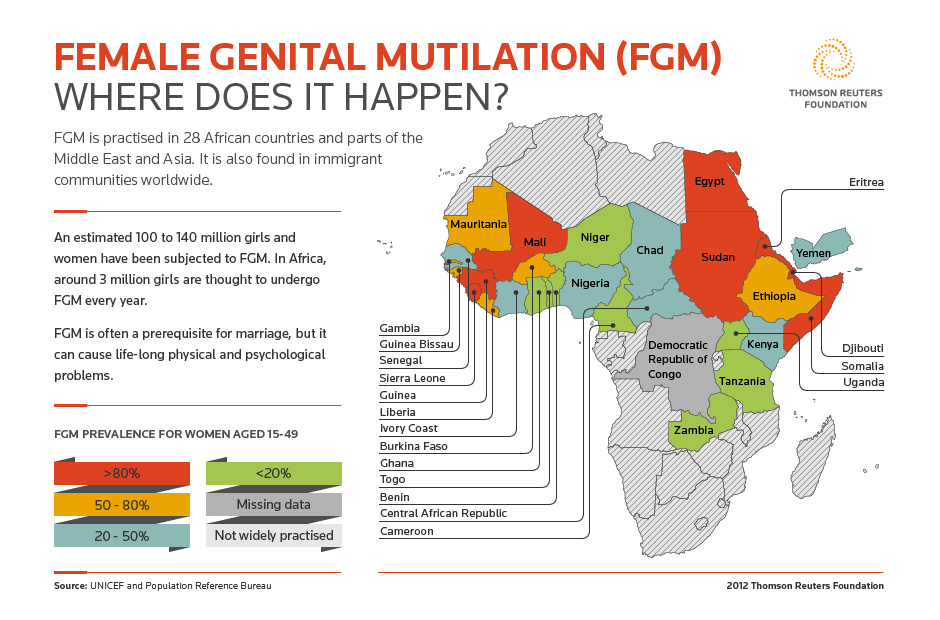You may or may not be aware of an extremely popular practice that occurs in other regions of the world, known as female genital mutilation (or FGM), but after reading this article we hope you'll spread the word. In many cultures, women must be virgins and "pure" when they get married, so it is a common practice to remove part or all of a woman's outer sexual organs in order to preserve this purity. The culture dictates that if a woman's parts are removed, she will subsequently have less drive and be less likely to have premarital sex. But this horrific and painful procedure can also cause infertility, death during pregnancy/childbirth and infections. According to World Health Organization predictions, some 125 million women across the globe suffer from FGMs, but with new legislation from Nigeria, that number might change.

Outgoing Nigerian President Goodluck Jonathan passed a game-changing bill through the Senate on May 5, which would effectively ban the practice of FGMs in Nigeria. The same bill also states that men will not be permitted to abandon their families without providing financial aid.
The reason this bill is so important is not only because a quarter of Nigerian women have had an FGM, but also because Nigeria is the most populated and one of the most important countries in Africa, so this decision carries possible ramifications for other countries as well. Organizations against FGM hope that the decision will create a precedent for other bills to follow.

Still. the fight against FGMs is far from over, and if you're hearing about this practice for the very first time, that might just be the reason why. It is a highly obscure and underreported issue, and it's important to raise awareness—it's time for this harmful and dated practice to be over, once and for all.